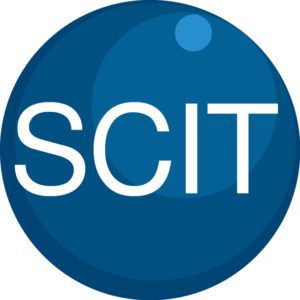
Mini-Grand Rounds: The short-run challenges and long-run opportunities of working from home
Nicholas Bloom, PhD
Professor (by courtesy), Economics
Senior Fellow, Stanford Institute for Economic Policy Research
7:00am – 7:30am, Zoom
The Stanford Radiology Mini-Grand Round live session events are by invitation only. Invites with link to Zoom video will be sent via email to Department faculty and staff only. Recordings will be made available to the public shortly after the event.

“Tumor-Immune Interactions in TNBC Brain Metastases”
Maxine Umeh Garcia, PhD
ABSTRACT: It is estimated that metastasis is responsible for 90% of cancer deaths, with 1 in every 2 advanced staged triple-negative breast cancer patients developing brain metastases – surviving as little as 4.9 months after metastatic diagnosis. My project hypothesizes that the spatial architecture of the tumor microenvironment reflects distinct tumor-immune interactions that are driven by receptor-ligand pairing; and that these interactions not only impact tumor progression in the brain, but also prime the immune system (early on) to be tolerant of disseminated cancer cells permitting brain metastases. The main goal of my project is to build a model that recapitulates tumor-immune interactions in brain-metastatic triple-negative breast cancer, and use this model to identify novel druggable targets to improve survival outcomes in patients with devastating brain metastases.
“Classification of Malignant and Benign Peripheral Nerve Sheath Tumors With An Open Source Feature Selection Platform”
Michael Zhang, MD
ABSTRACT: Radiographic differentiation of malignant peripheral nerve sheath tumors (MPNSTs) from benign PNSTs is a diagnostic challenge. The former is associated with a five-year survival rate of 30-50%, and definitive management requires gross total surgical with wide negative margins in areas of sensitive neurologic function. This presentation describes a radiomics approach to pre-operatively identifying a diagnosis, thereby possibly avoiding surgical complexity and debilitating symptoms. Using an open-source, feature extraction platform and machine learning, we produce a radiographic signature for MPNSTs based on routine MRI.

Radiomics and Radio-Genomics: Opportunities for Precision Medicine
Zoom: https://stanford.zoom.us/j/99904033216?pwd=U2tTdUp0YWtneTNUb1E4V2x0OTFMQT09
Pallavi Tiwari, PhD
Assistant Professor of Biomedical Engineering
Associate Member, Case Comprehensive Cancer Center
Director of Brain Image Computing Laboratory
School of Medicine | Case Western Reserve University
Abstract:
In this talk, Dr. Tiwari will focus on her lab’s recent efforts in developing radiomic (extracting computerized sub-visual features from radiologic imaging), radiogenomic (identifying radiologic features associated with molecular phenotypes), and radiopathomic (radiologic features associated with pathologic phenotypes) techniques to capture insights into the underlying tumor biology as observed on non-invasive routine imaging. She will focus on clinical applications of this work for predicting disease outcome, recurrence, progression and response to therapy specifically in the context of brain tumors. She will also discuss current efforts in developing new radiomic features for post-treatment evaluation and predicting response to chemo-radiation treatment. Dr. Tiwari will conclude with a discussion on her lab’s findings in AI + experts, in the context of a clinically challenging problem of post-treatment response assessment on routine MRI scans.

Mini-Grand Rounds: Stanford University Medical Center and COVID-19: A Chest Radiologist’s Perspective
Ann Leung, MD
Associate Chair, Clinical Affairs
Professor, Radiology
7:00am – 7:30am, Zoom
The Stanford Radiology Mini-Grand Round live session events are by invitation only. Invites with link to Zoom video will be sent via email to Department faculty and staff only. Recordings will be made available to the public shortly after the event.

Mini-Grand Rounds: The Outlook for Radiology in the Next Phases of the Pandemic and Beyond
David Larson, MD, MBA
Vice Chair, Education and Clinical Operations
Associate Professor, Radiology
7:00am – 7:30am, Zoom
The Stanford Radiology Mini-Grand Round live session events are by invitation only. Invites with link to Zoom video will be sent via email to Department faculty and staff only. Recordings will be made available to the public shortly after the event.
Stanford Molecular Imaging Scholars (SMIS) Program
Quarterly Seminar
Andrew Groll, PhD
Mentor: Craig Levin, PhD
“Initial Experimental Images from a CZT Preclinical PET System”
Brian Lee, PhD
Mentors: Sam Gambhir, MD, PhD; Craig Levin, PhD
“Precision Health Toilet for Cancer Screening”

PHIND Seminar Series: Moving Magnetic Resonance Imaging Towards a Low-Cost High-Value Medical Imaging Modality
Akshay Chaudhari, Ph.D.
Instructor
Department of Radiology
Stanford University
12:00pm – 1:00pm Seminar & Discussion
RSVP Here: https://www.onlineregistrationcenter.com/AChaudhari
The seminar will be available via a zoom live stream.
Meeting URL: https://stanford.zoom.us/j/257831873
Dial: +1 650 724 9799 (US, Canada, Caribbean Toll) or +1 833 302 1536 (US, Canada, Caribbean Toll Free)
Meeting ID: 257 831 873
ABSTRACT
Magnetic Resonance Imaging (MRI) is a medical imaging modality that offers exquisite resolution and soft-tissue contrast. It is an integral component in diagnostic radiology as well as in basic science research studies due its sensitivity in detecting subtle variations in tissue structure. While MRI can provide a rich source of information, typical acquisition times of 30-40 minutes can limit further widespread use, increase costs, and diminish the patient experience. Moreover, the high-resolution and multi-dimensional MRI datasets can also cause a challenge for efficient and accurate image interpretation. In this talk, through specific examples in musculoskeletal MRI, I will cover recent advances in MRI aided by classical engineering techniques as well as deep learning to substantially reduce the duration of MRI exams and for subsequent image analysis. I will describe how these efforts are helping change the paradigm of MRI by reducing costs and increasing efficiency.
ABOUT
Dr. Akshay Chaudhari is an Instructor in the Radiological Sciences Lab (RSL) and Precision Health and Integrated Diagnostics (PHIND) sections in department of Radiology who works at the interface of radiology and artificial intelligence. His research interests include developing efficient and safer medical imaging acquisition techniques, repeatable and accurate image analysis tools, and on multi-modality sensor fusion. He graduated with honors with a B.S. in Bioengineering from the University of California San Diego in 2012 and completed his Ph.D. from Stanford Bioengineering in 2017 focusing on novel MRI methods to perform rapid quantitative musculoskeletal imaging. Dr Chaudhari received the National Science Foundation Graduate Research Fellowship, the Whitaker Fellowship, and the Siebel Fellowship to support his doctoral research. Dr. Chaudhari is the winner of the ISMRM W.S. Moore Young Investigator Award, and has won 6 additional young investigator awards for his work on advanced medical imaging acquisition and analysis techniques, and is a Junior Fellow of the ISMRM.
Hosted by: Sanjiv Sam Gambhir, M.D., Ph.D.
Sponsored by the PHIND Center and the Department of Radiology

PHIND Seminar Series
11:00-11:30 AM | Dr. Anoop Rao, M.D., M.S.
“Wearable Sensing for Neonates”
Clinical Instructor, Pediatrics (Neonatology)
Lucile Packard Children’s Hospital
Stanford University School of Medicine
11:30-12:00 PM | Dr. Eric Dy, Ph.D.
“Crowdsourced data and machine learning to design the future of prenatal care”
Co-founder and CEO
Bloomlife
12:00pm – 1:00pm Seminar & Discussion
RSVP Here: https://www.onlineregistrationcenter.com/PHIND061620
This seminar will be available in person and via a Zoom live stream.
Meeting URL: https://stanford.zoom.us/j/92848236311
Dial: +1 650 724 9799 or +1 833 302 1536
Meeting ID: 928 4823 6311
Dr. Anoop Rao Bio
Anoop Rao is a Clinical Instructor in Pediatrics (Division of Neonatology) at the Lucile Packard Children’s Hospital. After completing early medical training in India, he obtained his MS from MIT, and completed clinical training in Pediatrics from Columbia and fellowships in Neonatal Critical Care from Stanford and Biomedical Informatics from Harvard. He spent over 5 years at AgaMatrix, a startup focused on developing high-accuracy blood glucose meters.
At Stanford, his research is on contact and non-contact monitoring of infants. Anoop collaborates extensively with industry and is actively supported by NIH/Maternal and Child Health Research Institute.
Dr. Eric Dy Bio
Eric Dy, PhD is co-founder and CEO of Bloomlife, a women’s health company designing remote prenatal care solutions to improve the health of women and babies. Eric brings unique perspective on the opportunities and challenges in emerging healthcare technologies and delivery models informed by multidisciplinary technical expertise leading business development for Europe’s leading R&D institute, imec. Eric earned his BSc in Bioengineering from Cornell and his MSc and PhD in Biomedical Engineering from UCLA. Bloomlife has been recognized for their pioneering work winning Fast Company World Changing Ideas, Johnson & Johnson Quickfire Challenge, Richard Branson’s Extreme Tech Challenge, MedTech Innovator Award, and speaking at the White House Precision Public Health Summit.
Dr. Eric Dy Abstract
The period from conception through the first 1000 days of life are the most critical for lifelong health and development, yet too often we are failing women and babies at this time. High risk pregnancies are on the rise, access to care is increasingly a problem, and pregnancy complications such as preterm birth now affect 1 in 10 babies. Despite these growing challenges, the way we deliver prenatal care has not fundamentally changed in over 60 years. We need smarter tools, better data, and scalable solutions to improve the health of moms and babies globally.
In this talk Bloomlife co-founder and CEO will share their strategy for designing the future of prenatal care. He will discuss how clinical grade wearables, in the hands of mom, has helped create the largest dataset on pregnancy in the world, and how AI applied to this dataset is seeding breakthrough screening and diagnostic tools to help solve global maternal health issues including preterm birth.
Hosted by: Sanjiv Sam Gambhir, M.D., Ph.D.
Sponsored by: PHIND Center, Department of Radiology and eWEAR Initiative

PHIND Seminar Series: What is in your sweat and what can it mean for health and disease?
11:00 AM – 12:00 PM: Seminar & Discussion
RSVP: https://www.onlineregistrationcenter.com/VShankar
Presenter:
Vishnu Shankar, M.S.
Department of Chemistry
Stanford University
Principal Investigators:
Michael Snyder, Ph.D.
Stanford W. Ascherman, MD, FACS Professor in Genetics
Stanford University
Robert Tibshirani, Ph.D.
Professor of Biomedical Data Science and of Statistics
Stanford University
Richard Zare, Ph.D.
Marguerite Blake Wilbur Professor in Natural Science and Professor, by courtesy, of Physics
Stanford University
Location
Webinar URL: https://stanford.zoom.us/s/99817512229?pwd=QitCTjRXMEdBTWZyd29MTHYyNU5Xdz09
Dial: +1 650 724 9799 or +1 833 302 1536
Webinar ID: 998 1751 2229
Password: 489011
ABSTRACT
Sweat is a complex fluid known to be rich in electrolytes, small molecules, and fatty acids. Although adults can sweat up to 10 liters per day, little is still known about the chemical composition of sweat, how this changes, and what are its implications for health and disease. We demonstrate a powerful approach to help elucidate this link, where collecting samples simply requires swabbing a glass slide across one’s forehead in less than 30 seconds. Using the combination of desorption electrospray ionization mass spectrometry and statistical machine learning, our approach can successfully detect over 10,000 metabolites in sweat and identify metabolic changes in the sweat profile related to gender, age, and disease. As an example, we demonstrate in a cohort of 65 subjects the possibility of using just a few metabolites detected in sweat to successfully identify patients with renal disease. More generally, our approach suggests the possibility of using the sweat profile to non-invasively assess individual risk for metabolic diseases in the theme of “Precision Medicine.”
ABOUT VISHNU SHANKAR
Vishnu Shankar recently graduated with his master’s degree in computer science, with a specialization in artificial intelligence from Stanford University. He completed his bachelor’s degree with honors in mathematical and computational sciences in 2018, also at Stanford, with his senior thesis on Bayesian networks for incorporating effect modifiers in meta-analysis. In addition, his background spans biology, mathematics, chemistry, statistics, operations research, physics, and computing. Vishnu has published 6 papers and 3 articles in fields including protein structural prediction, comparison of clinical guidelines cost-effectiveness in type 2 diabetes, development of programs to combat mental illness, cancer diagnosis with analytical chemistry and machine learning, and related areas. He is also the founder of the CARES organization to support peer student wellness at college campuses, for which he won the Asoka Youth Changemaker award sponsored by Boehringer Ingelheim. Vishnu has enthusiastically pursued science since his middle school days and has worked on demonstrating the possibilities of DNA computing, simulating protein folding, studying the genetic modifications in fruits and vegetables, and more. He has been recognized for his scientific research as an Intel Science Talent finalist, Google Science Fair Regional finalist, recipient of the American Institute of Aeronautics and Astronautics Excellence award for his work on epidemiology modeling. Vishnu has interned at Caltech and Genentech, where he applied experimental techniques to purify and study protein behavior including dialysis, titration, chromatography for early stage drug development. He was also selected as one of the two high school students to represent the western US Confucius Institute in Student Leaders Exchange Program in China as a non-native Mandarin speaker.
Hosted by: Sanjiv Sam Gambhir, M.D., Ph.D.
Sponsored by the PHIND Center and the Department of Radiology

Stanford Molecular Imaging Scholars (SMIS) Program Quarterly Seminar
Zoom meeting: https://stanford.zoom.us/j/99117388314?pwd=R29OSjlTdUt0a3pLaG5Zc1BFNTJIUT09
Password: 922183
Guolan Lu, PhD
Mentor: Eben Rosenthal, MD; Garry Nolan, PhD
“Co-administered Antibody Improves the Penetration of Antibody-Dye Conjugates into Human Cancers: Implications for AntibodyDrug Conjugates”
Dianna Jeong, PhD
Mentors: Craig Levin, PhD; Shan Wang, PhD
“Novel Detection Approaches for Achieving Ultra-fast time resolution for PET”